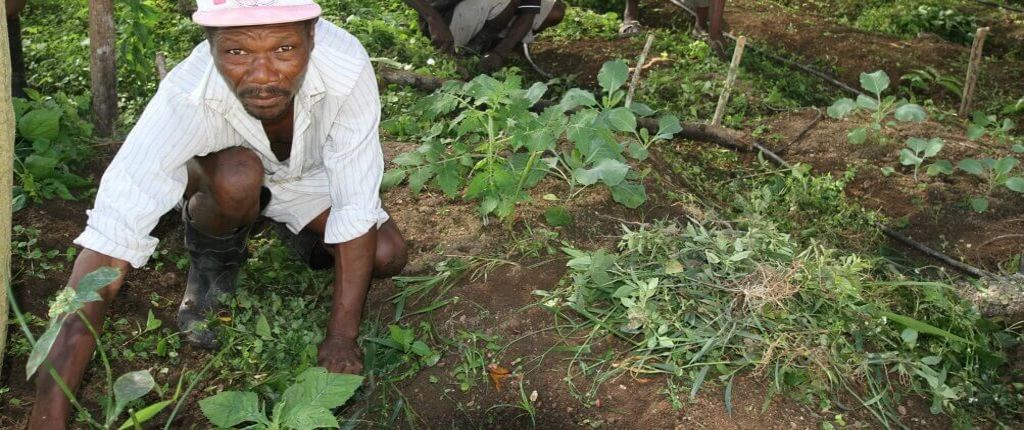
More resilient to climate change
Haiti’s woodlands are all but gone. Only three percent of the island nation is still forested, and the production of charcoal, which is one of the major sources of income and energy in rural areas, continues to drive deforestation. As forests store carbon dioxide, logging contributes to climate change. For people living locally, the consequences can be fatal: without the forests, they are exposed to heavy storms and rains as well as natural disasters, which have struck the country more and more frequently in the past years.
Additionally, soil erosion, a consequence of deforestation, can lead to deadly landslides. In Haiti - where up to 60 per cent of the land consists of steep hills, this is a serious and widespread problem. After a landslide, agricultural land is lost, and the rural population that had relied on its income becomes suddenly unable to feed their families. This problem is reinforced by a lack of knowledge about sustainable agriculture.
To strengthen the communities in Belle-Anse, a rural region of Haiti, against the consequences of climate change, Malteser International demonstrates the sustainable use of resources. This includes water, sanitation and hygiene as well as agricultire - factors which all directly influence the health of the population.
According to the Global Hunger Index of October 2012, Haiti is one of the three countries whose food security situation is extremely alarming. In October 2012, Hurricane Sandy made this situation even more precarious, destroying most of the annual harvest. According to government estimates, 1.5 million Haitians are food insecure. This is especially the case in remote rural communities as in those in the Belle-Anse region, which are mainly dependent on agriculture. As a result of climate change, scientists predict that more hurricanes of greater intensity will hit Haiti in the years to come. Haiti took first place in the 2012 Climate Change Vulnerability Index: rated at extreme risk of climate-related disasters.
The region Belle-Anse suffers from extreme poverty and a lack of access to social infrastructure. Agriculture and charcoal production are the main sources of income. People’s living conditions are therefore closely linked to climate change and its consequences. The impact is already visible today, with heavy soil erosion leading to frequent landslides. The precarious situation is worsened by the fact that the available resources, such as agricultural land and water, are not administered sustainably.
- Sustainable land use and improved nutrition security.
- Protection and preservation of forest land to counter erosion and the negative impact of climate change.
- Sustainable use of water by the people living in Belle-Anse.
- Mobilization of the villages around the issues of hygiene and sanitation.
- Training of 900 small scale farmers in sustainable agriculture using two model and learning gardens to avoid erosion, protect agriculture land, increase productivity and assure adequate and sufficient nutrition.
- Set up of a green house and training of 50 women to use and maintain it to diversify nutrition and increase the women’s income.
- Set up of a plant garden for reforestation with 200,000 plants that sustain the biodiversity of the region.
- Implement pilot projects to reduce the deforestation as for example the introduction of energy-saving stoves.
- Protective plantations along a river to avoid erosion and assure the water supply.
- Training of four water committees to manage existing watering places.
- Group discussions in the villages about the sustainable use of water in everyday life.
- Training of 20 volunteers as community mobilizers for the issues of hygiene and sanitation using the method of Community-Led Total Sanitation (CLTS) Construction of 100 family latrines.
Country info
Captial: Port-au-Prince
Area: 27,750 km²
Population: c. 10.4 Million
Project data
Project duration: since October 2012
Donors: German Federal Ministry for Economic Cooperation and Development (BMZ), private donations
Partner: COTEDO
Last updated: June 2016








